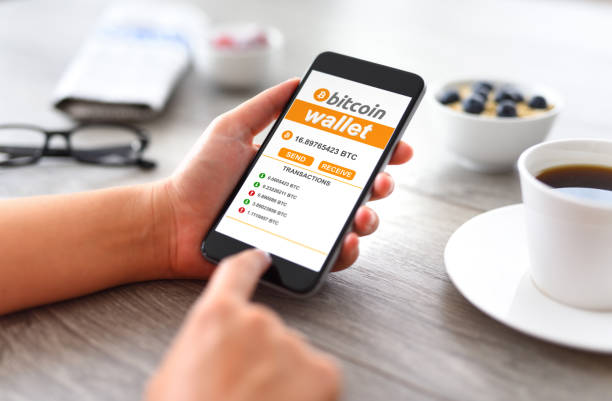If you’re reading this, then chances are you’ve heard about a blockchain wallet recently.
A distributed network ensures that multiple peers are accessible to accept and authorise a transaction in a decentralised platform, whether that transaction is saving or processing a file or transmitting bitcoin to your other peer.
Even if some verifiers were unavailable on the network, you don’t have to wait for the transaction to be verified.
Users can use a blockchain wallet to transfer, receive, store, and exchange value on the blockchain and monitor and control the value of their assets.
A blockchain network allows scattered users to communicate directly with one another and transact value with one another.
Thanks to cryptography, this occurs without the use of a middleman or a single point of failure and in a secure manner.
When the requirement for trust through human verification is eliminated or limited, peer-to-peer transactions and communications offer low costs and high speeds.
To avoid a single point of failure, if you submit a transaction to the other person through a bank, you must wait for the transaction to be manually or automatically verified.
If a banking service is unavailable due to internal or external circumstances, you will be unable to transact and will have to wait.
What is a Blockchain Wallet?
A blockchain wallet is a piece of digital software that holds private and public keys.
It also monitors and records all transactions involving those keys on the blockchain.
A blockchain wallet, in theory, does not store cryptocurrency.
Instead, all records about these keys are maintained on the blockchain on which the wallet is housed.
This implies that the wallet generates an ID that can be used to track all related transactions.
The blockchain ID is the blockchain wallet address linked to the public and private keys.
Innovative Tech Solutions, Tailored for You
Our leading tech firm crafts custom software, web & mobile apps, designed with your unique needs in mind. Elevate your business with cutting-edge solutions no one else can offer.
Start NowBlockchain wallets, in practice, allow users to store, send, receive, and manage digital assets.
This includes Bitcoin, Ethereum, Litecoin, and other cryptocurrencies on the blockchain.
A blockchain wallet makes it simple to transfer money.
Because transactions are cryptographically signed, they are safe.
The wallet may be accessed from any online device, including mobile devices, and the user’s privacy and identity are protected.
As a result, a blockchain wallet includes all the characteristics required for safe and secure fund transfers and swaps between participants.
It’s pretty similar to sending or receiving money using PayPal or any other current payment method.
Only you’re using cryptocurrency instead.
Electrum, Blockchain.info, Jaxx, Mycelium, Samurai, and the Bitcoin paper wallet are all examples of blockchain wallets.
There are many more options depending on your demands and the level of security you desire.
Read: All You Need To Know About Cryptocurrency

How Do Blockchain Wallets Work?
A unique master seed is created when you create your Blockchain Wallet.
This master seed is the foundation of your wallet.
It generates each Bitcoin address you use to send and request Bitcoin.
Wallets do not keep your bitcoins.
Instead, they supply you with the software necessary to do so.
Your personal password is used to encrypt your wallet on your device.
This is known as client-side encryption, meaning your wallet is only accessible to you.
Your password serves as the decryption key for locking and unlocking your wallet.
Without it, you won’t be able to access it.
Because wallets don’t know or save your password and can’t reset it, the only way to unlock and decrypt your wallet is for you to do it.
Your encrypted wallet is backed up to the servers of your wallet service provider automatically.
Another degree of security is given by encrypting your wallet a second time to keep it safe.
By securely storing your wallet on the servers, you can access it from any (and all) of your devices.
Seamless API Connectivity for Next-Level Integration
Unlock limitless possibilities by connecting your systems with a custom API built to perform flawlessly. Stand apart with our solutions that others simply can’t offer.
Get StartedYour browser uses the wallet service provider’s API to download your encrypted wallet backup before safely decrypting it on your device when you access your wallet with your Wallet ID (a unique identifier particular to your wallet) and password.
Your Backup Phrase is an encoded version of your master seed comprising 12 random words (and it is industry-standard).
It serves as a backup and allows you to access your bitcoins and ether regardless of your wallet software.
If you forget your password or switch to another wallet service provider, your Backup Phrase is all you’ll need to get back into your money.
Read: How to Choose the Right Cryptocurrency Wallet for Your Needs

Types of Blockchain Wallet
Hot and cold wallets are the two types of blockchain wallets based on private keys.
Hot wallets are user-friendly and similar to wallets we use for everyday transactions.
Cold wallets are similar to vaults in that they securely hold cryptocurrency.
Hot Wallets
A hot wallet is a cryptocurrency wallet that is always online and connected to the blockchain.
It is used to transmit and receive cryptocurrency and to keep track of your tokens.
If you acquire or mine a cryptocurrency, you’ll need to create a wallet to make transactions easier to use to buy products or services.
When the ecosystem transfers ownership to you, your cryptocurrencies, or rather the private keys you use to access the money, are held in these wallets.
When you purchase a cryptocurrency, you are given private keys to identify it as your own.
Public keys are similar to account usernames in that they identify the wallet and allow the user to get tokens without divulging their identity.
Private keys are comparable to personal identification numbers.
They allow you to access your wallet and perform functions such as checking balances, initiating transactions, etc.
The wallet is effectively useless without one of these keys.
Hot wallets are internet-connected applications that link to the cryptocurrency infrastructure and allow you to use them.
A user’s hot wallet is the interface to access and store their cryptocurrency.
Their job is to make any changes to the transaction record stored on the decentralized blockchain ledger for any cryptocurrency you use easier for the cryptocurrency network.
Read: What is an MPC Wallet in Blockchain?
Cold Wallets
A cold wallet, commonly called cold storage, is an offline wallet for holding bitcoins or other cryptocurrencies.
The digital wallet is stored in cold storage on a platform that is not linked to the internet, protecting it against unauthorised access, cyber hacks, and other vulnerabilities that a system connected to the internet is vulnerable to.
An offline wallet for storing bitcoins or other cryptocurrencies is known as cold storage.
Transform Business with Custom CRM & ERP Solutions
Elevate your operations with a CRM or ERP tailored for you. Let’s build the perfect solution that others can't replicate—crafted to match your business's needs like no other.
Get StartedThe digital wallet is stored in cold storage on a platform that is not linked to the internet, protecting it against unauthorised access, cyber hacks, and other vulnerabilities that a system connected to the internet is vulnerable to.
Read: Hot Wallet vs Cold Wallet in Cryptocurrency
Conclusion
In conclusion, a blockchain wallet is essential for securely managing digital assets in the decentralized world of cryptocurrencies.
Thanks to advanced cryptography, it offers users the ability to store, send, and receive funds with the assurance of privacy and security.
Whether using a hot wallet for quick access or a cold wallet for added security, understanding how blockchain wallets work empowers users to make informed decisions in the growing cryptocurrency landscape.
As digital currencies continue to evolve, having the right wallet ensures that your assets remain accessible and protected, allowing you to confidently navigate this dynamic space.
Before You Go…
Hey, thank you for reading this blog post to the end. I hope it was helpful. Let me tell you a little bit about Nicholas Idoko Technologies.
We help businesses and companies build an online presence by developing web, mobile, desktop, and blockchain applications.
We also help aspiring software developers and programmers learn the skills they need to have a successful career.
Take your first step to becoming a programming expert by joining our Learn To Code academy today!
Be sure to contact us if you need more information or have any questions! We are readily available.











